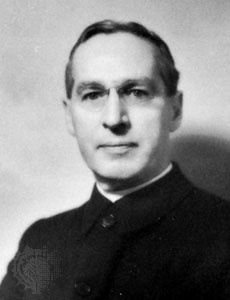Cooper, John M.
American anthropologist
in full John Montgomery Cooper
born Oct. 28, 1881, Rockville, Md., U.S.
died May 22, 1949, Washington, D.C.
 U.S. Roman Catholic priest, ethnologist, and sociologist, who specialized in studies of the “marginal peoples” of southern South America, northern North America, and other regions. He viewed these peoples as having been pushed back into less desirable territories by later migrations and as representing cultural survivals from prehistoric times.
U.S. Roman Catholic priest, ethnologist, and sociologist, who specialized in studies of the “marginal peoples” of southern South America, northern North America, and other regions. He viewed these peoples as having been pushed back into less desirable territories by later migrations and as representing cultural survivals from prehistoric times.Ordained in 1905, Cooper became a part-time instructor at the Catholic University of America, Washington, D.C., in 1909. His first ethnological work, An Analytical and Critical Bibliography of the Tribes of Tierra del Fuego and Adjacent Territory (1917), marked the beginning of his writing on marginal cultures. Concerned with group social work and varied sociological questions from 1917 to 1925, he became an associate professor (1923) and a professor (1928) of sociology and he served as chairman of the first department of anthropology in a Catholic university (1934–49).
Though Cooper became an authority on the Indians of southern South America, he never made field trips to the region. He made repeated visits, however, to the Algonquian-speaking tribes of the Great Plains and northeastern Canada and wrote many articles on their material culture, social customs, and magic and religion. He was particularly concerned with population distribution and historical reconstruction and advanced the theory of the “marginal peoples” in Temporal Sequence and the Marginal Cultures (1941). He was founder of the journal Primitive Man (Anthropological Quarterly since 1953). His final North American Indian monograph, The Gros Ventres of Montana (1957), dealt with religion and ritual.
- Warren, Leonard
- Warren, Mercy Otis
- Warren, Rick
- Warren, Robert Penn
- Warrensburg
- Warren Spahn
- Warren Wright
- Warri
- Warring States
- Warrington
- Warriston, Archibald Johnston, Lord
- Warrnambool
- Warrumbungle Range
- Warsaw
- Warsaw, Compact of
- Warsaw, Duchy of
- Warsaw Ghetto Uprising
- Warsaw Pact
- Warsaw Uprising
- Wars of the Roses
- Wars of the Vendée
- Wars of Yahweh, Book of the
- wart
- Warta River
- Wartburg